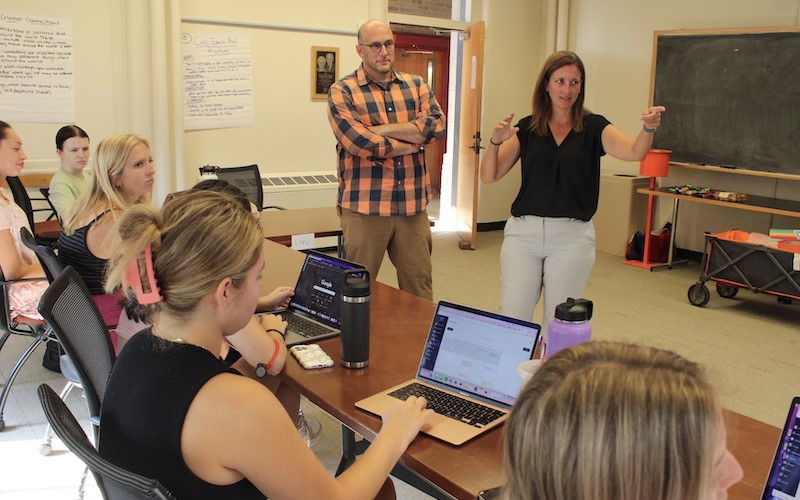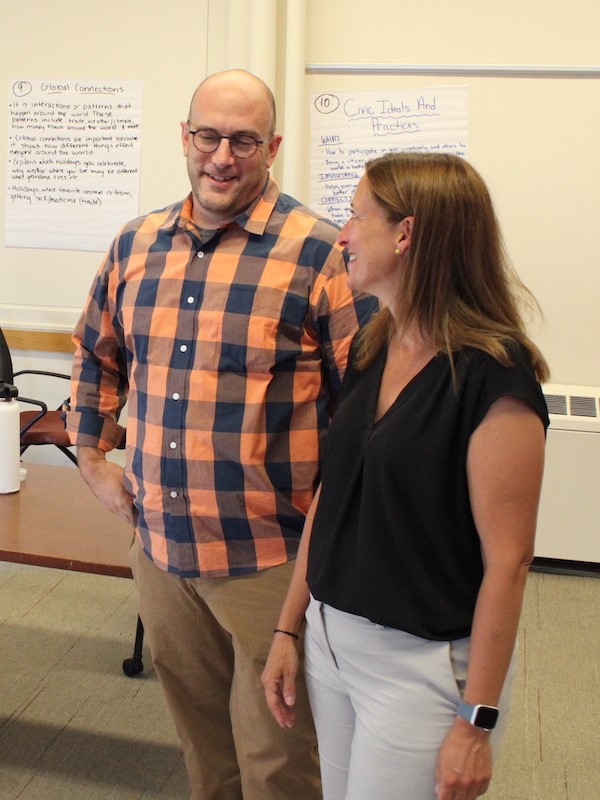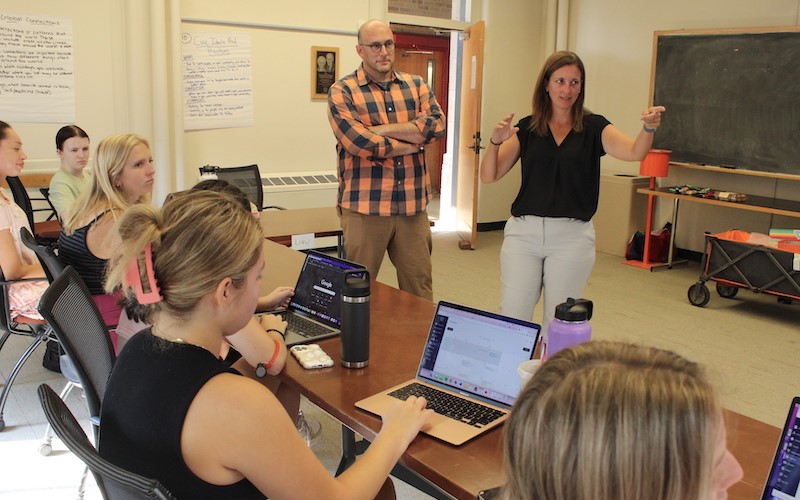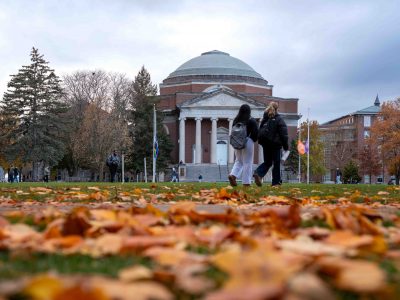Professors Theoharis and Myers Reflect on 25 Years of Social Studies and Inclusive Education Team Teaching
It is one of the Syracuse University School of Education’s most significant “firsts.” In 1990, student teachers were admitted into a brand new inclusive elementary and special education bachelor’s degree program, which aligned the school’s teacher preparation curriculum with its commitment to ending the separation of general and special education in American schools.
Believed to be the first fully integrated inclusive program offered at a research university, successful graduates receive New York State initial teacher certification in both Childhood Education (Grades 1-6) and Students with Disabilities (Grades 1-6).
In 1998, two professors decided to take the school’s inclusive teacher preparation curriculum a step further. Paula Kluth and Diana Straut designed together and then team taught a general education preparation course in combination with a special education course.
The idea behind these combined classes was so that teachers-in-training could learn how to adapt—or differentiate—general education content for students with disabilities, thus supporting all students in the general classroom and training novice teachers to facilitate inclusion.
So successful has been this shared class and team teaching model that it continues to this day, now led in most semesters by Professor George Theoharis (EED 336: Social Studies Curriculum and Methods) and Professor Beth Myers (SPE 324: Differentiation for Inclusive Education). Reflecting on a quarter century of the shared class model, Theoharis and Myers explain how it works and what its advantages are.

Myers: Students sign up for both of our classes together in a block with other classes and a field experience. Typically, they come to my class in the morning, then to George’s class in the afternoon, except the times when we co-teach both classes at the same time. Both classes share readings, assignments, midterms, lesson planning and field experiences. Across the semester, students do four weeks of intensive university classroom study two to three times a week before going into the field. Then they come back to campus for presentations and more lesson planning work. After that, they go into the field again.
Theoharis: Going back to the ’90s, the original thought behind this team-teaching model for teacher preparation was that, if the School of Education was going to be a leader in inclusive education with a dual certification—so that graduates are equipped to teach both general and special education—then our students ought to experience inclusion in action. Within this block, students get to learn special education strategies and tie that into the social studies content area. All the while, they experience two professors modeling collaboration and co-teaching, something our graduates will have to do in their schools.
Myers: If I’m teaching inclusive practices, then I need content to show the students how you differentiate it for students with disabilities. Our students look at the social studies content and learn to make it relevant for all learners—how to make it accessible and how to modify it. Ultimately, I’m teaching how to differentiate content for any subject and for all aspects of a classroom or even of a school. That even means how to ensure lunch, recess and extracurricular activities are accessible for all students and their families. Social studies is a great content fit for us because it is in that curriculum that we learn about diversity, including disability, and how to consider a wide range of cultures.
Theoharis: My background isn’t in special education, but co-teaching with Beth has forced me to be more special education fluent, which is of course something we want our students to be.
Myers: And I feel the same way about social studies, learning from George how to teach that content and good pedagogical practices. We are learning from each other.
Theoharis: I think our courses have gotten better and better over the years because we do them together. Beth and I meet and discuss about what we have done—along with our doctoral students who help us in the classroom—and if we did something by accident that really worked, we’ll discuss that and decide whether to keep doing it.
Myers: It’s all pretty meta! We’re teaching about co-teaching by co-teaching. It’s important for students to see collaboration in practice and then to take it with them into the classroom.

Theoharis: This model is something pretty special about the School of Education. We led the nation in dual certification and other colleges followed suit. But I don’t know of many teacher preparation programs that co-teach a general education and inclusive education methods class, and not just for one class sessions or for a couple of student cohorts.
Our co-teaching embeds general education content and inclusive education content for an entire semester, and we have maintained this commitment for 25 years. It reinforces the core values of the school—our commitment to inclusive education and the idea that general and special education do not have to be separated. Thanks to our program, students feel like they have lived through inclusion. They see that it’s possible.



